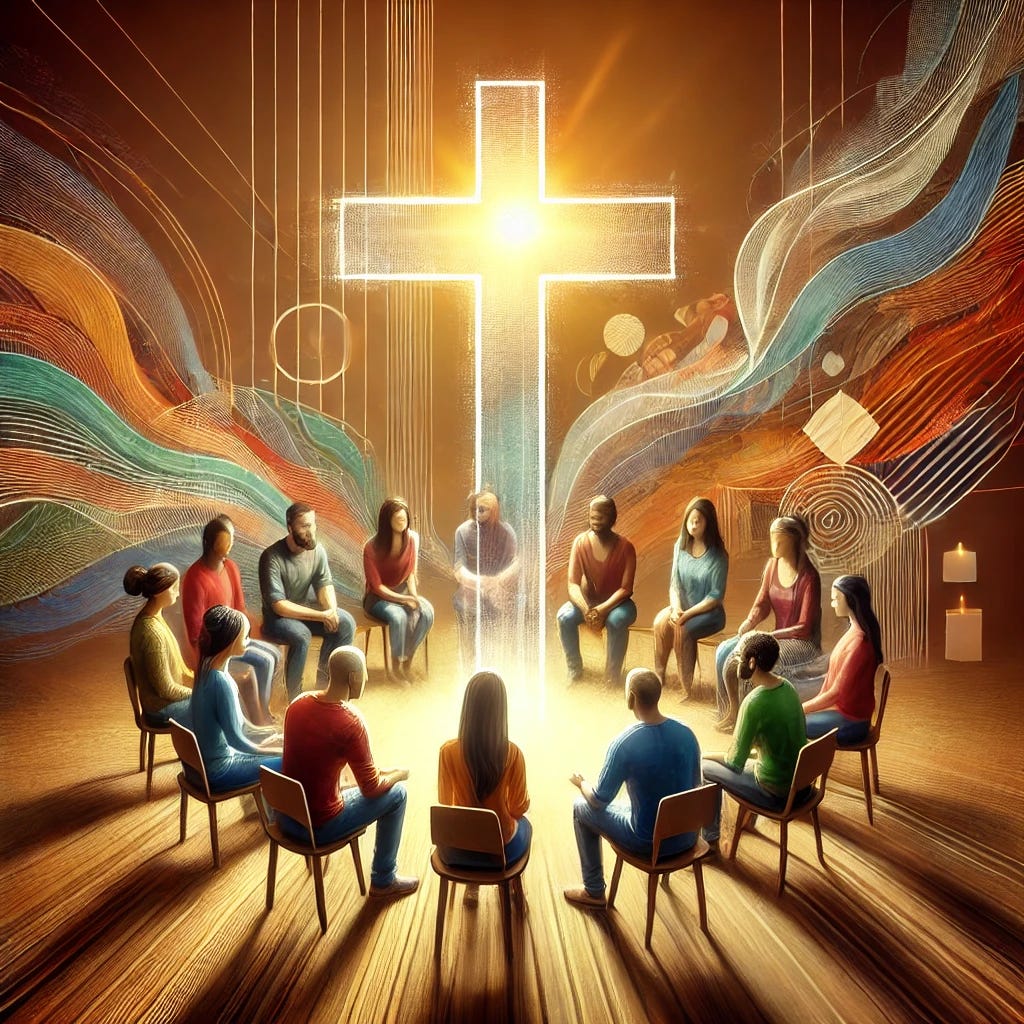Going “Viral” and the Challenge of Commonality
Going “viral” is something I’ve never really experienced before, so when my recent post gained more traction than anything else I’ve published before, the experience came with some unexpected surprises. Chief among them was this: a Substack message from a fairly well-known figure in the church space saying something to the effect of, “I agree with your post. I’ve seen the same thing in my own experiences, where churches that were founded and experienced growth while being centered on God’s grace shifted towards an obsession with identity politics, and now these churches have since closed.”
I’m choosing to keep this person and their comment anonymous, as they could have commented publicly if they wished to share their identity and opinion. Nonetheless, I found the comment surprising and somewhat startling. For one, I was aware of the examples they were referencing and was grieved to hear of the result. More importantly, it affirmed something I had sensed but struggled to articulate.
This post explores how DEI efforts, while well-intentioned and necessary, may be faltering due to a messaging approach that emphasizes difference over commonality. Drawing from my training in Asset-Based Community Development (ABCD), I propose an alternative framework that aligns with a more grace-filled vision of Christian community.
Asset-Based Community Development and a Strengths-Based Approach
In recent days, I participated in a day-long training at my job on Asset-Based Community Development (ABCD). ABCD is a framework for community transformation that focuses on identifying and leveraging existing strengths, skills, and resources within a community rather than emphasizing its deficits or needs. Developed by John McKnight and Jody Kretzmann, ABCD operates on the belief that sustainable change comes from within a community, utilizing local talents, networks, and institutions to drive positive development. By recognizing and mobilizing what a community already has, ABCD promotes long-term, grassroots-driven change that enhances resilience and collective well-being.
To begin the training, the facilitator put two maps on the wall—one of the United States and one of the world—inviting each of us to chart how we got to where we are today. We marked where we were born, where we’d lived, and what brought us to our current location, sharing as little or as much as we were comfortable with. Being a somewhat private person, I didn’t share in great detail, but I found it fascinating to hear the stories and journeys of others, especially what led them to where they are today.
What stood out to me most, however, was a comment the facilitator made afterward. He explained that his goal in leading such an activity was to emphasize our commonality. He said that when leading groups and seeking to build collaboration and cooperation, it’s much better to begin with commonality rather than contention. He explained that when seeking to solve complicated issues together, it’s better to begin by finding points of commonality rather than emphasizing our differences. I found this quite intriguing, as it goes against training I’ve received in other contexts.
When Commonality is Discouraged
A few years back, when working in a church context, I was given a DEI-type assessment. I can’t remember what it was called, and it doesn’t really matter. What surprised me was that I received a middle grade for not being “DEI” enough. As I understood it, my lower rating stemmed from my approach of looking for commonalities as a foundation for building connections. The assessment suggested that one should instead focus on differences and uniqueness. Even at the time, something about that approach felt amiss, but as a white man, I didn’t feel in the best position to question it. Even still, I wondered if there was a better way.
In recent months, we’ve seen a massive backlash against DEI efforts, culminating in the election of Donald Trump and the vengeful actions being taken now against anything and everything DEI-related. Similarly, in church spaces, it seems that churches that have leaned into an “identity politics” approach have struggled as well, as exemplified by the example above. Reflecting on this within church spaces, I wonder if the emphasis on differences is actually counterproductive.
The Challenge of Identity Politics in Church Spaces
Two things about an “identity politics” approach (and I recognize that this phrasing is itself loaded) stand out to me as working against the message of the church. For these, I return to the idea of ABCD.
First, Asset-Based Community Development emphasizes a strengths-based approach rather than a needs-based approach. Our facilitator gave the example of working with a community that had many needs. But instead of focusing on their deficits, he encouraged them to identify their assets. I think the reason why is the same reason so many “identity politics” approaches struggle to gain traction—there are so many issues, so many needs to be addressed, that people and communities end up in a sort of victimhood competition, competing over who is the most aggrieved. No doubt, there are countless examples of historical and systemic marginalization and oppression. But I wonder, through an ABCD lens, if the identity politics approach divides people rather than offering them pathways of commonality that can help them work together.
Second, an overemphasis on differences can create an "us vs. them" mentality, even among those who share similar goals. When identity politics becomes the primary framework through which communities engage, it can inadvertently lead to fragmentation rather than solidarity. Rather than fostering a sense of shared purpose, it can cause individuals to feel disconnected or even at odds with others who might otherwise be allies. In church spaces, this can manifest in a focus on who belongs to which category rather than a unifying message of grace that transcends those divisions. Additionally, it can be alienating to be told repeatedly how different some people are from you. When the church becomes preoccupied with difference at the expense of connection, it risks losing its ability to be a space where people find reconciliation and belonging.
The Christian Message of Grace
I return to this comment about the importance of grace. Here is where I think the uniqueness of the Christian message has so much good to say.
First, in understanding sin and brokenness, we recognize the ways that humans, both individually and systemically, have harmed one another. Our world is full of brokenness. In humility, we offer our confessions to God and to one another—acknowledging our complicity, whether through individual actions or participation in harmful systems, especially those that have disproportionately affected marginalized groups.
Second, as a community born of grace, the church offers a space for all of us to share in God’s grace and forgiveness—recognizing our own sin and brokenness and seeking to extend God’s grace and forgiveness to others. And from this foundation, we come together, each as “sinners” (another loaded word), each in need of God’s grace and redemption, yet filled with the Spirit of God. Together, with the gifts and promptings of the Spirit, we respond to where we are being invited by God to work together in the world to share the Good News of God’s love and justice—dare I say, the Gospel of Jesus (another loaded word).
This approach, which to me mirrors the ABCD approach, strikes me as far more inclusive and unifying than other approaches that seem to divide and differentiate.
A Call for a More Effective Approach
Even still, I recognize my insights are biased by my own social context and limitations. I may be wrong entirely. I do not wish at all to minimize the very real injustices that others have suffered. I do not wish to ignore or dismiss the very real things that make us each different and unique. But it seems clear that recent approaches are not working. People (mostly white people) are responding with anger and resentment. And while certainly, this may simply be due to their own sinfulness, I wonder if, taking a cue from the Apostle Paul, we might adopt the approach of “all things to all people, that we might by all means save some” (1 Cor. 9:22).
I long to see the church be a place of grace, inclusion, and healing. I support the broad goals of DEI and want them to succeed. But I worry that the current messaging may be counterproductive. If the goal is to create a more just and inclusive society, then we must ask whether our strategies are truly building bridges or unintentionally deepening divides. Even still, I may be wrong. If so, what would you advise?






I appreciate your nuances and willingness to ask questions. There are many shades of gray here.
Good stuff! I have a podcast guest on tomorrow that talks about being anti-racial and similar things about not diving people but focusing on commonalities.